| item(s), Total: $0.00 View Cart |
| Shopping cart is empty. |
There's been a little bit more roadwork going on down Farrall Road from us as the Shire are putting in some extra breaks in the median strip for local residents - it's not quite over yet. If you're coming out to visit; we're definitely open - tell the lollypop person you're coming to see Green Life and they'll let you through.
Those of you who keep an eye on our Facebook page may have seen the little videos we've been making lately. Some feature Leesa from The Greenhouse and we bring you a few ideas to use and grow herbs and vegies. I've been uploading these to YouTube - and we'll be adding more as time goes on, so check in every now and again. Video is a brave new world for us - we hope we'll get better & better at presenting them as we go along. If you've any suggestions for topics to cover; let us know! You can find us on YouTube here. It's a busy time in the garden - enjoy these lovely sunny days outdoors!
In this newsletter:Jobs to do in the November Garden Jobs to do in the November Garden
What to Plant Now
Check out our free downloadable growing guides (there's a planting calendar for vegies, one for herbs and expanded growing guides for Top 12 edible plants for Spring/Summer) - click here to view them. Some things you may wish to consider planting now are: Artichokes (globe), Asian greens, Basil, Beans, Beetroot, Broccoli*, Cabbage*, Capsicum, Chilli, Celery, Choko, Cucumber, Eggplant, Ginger, Kale*, Leek, Lettuce, Melons, Okra, Potatoes, Pumpkin, Radish, Rocket, Silverbeet, Spring onion, Strawberries, Sweet corn, Sweet potato, Tomato, Squash, Zucchini. * Members of the Brassica family will grow over Spring/Summer in Perth - however they're considered best grown through Autumn/Winter due to pests. Should you wish to grow them year-round; you'll definitely need to consider insect netting; or consider growing them as microgreens. Packed full of flavour and nutrition, you can grow these small seedlings indoors (or they're easy to cover up). We've got info on how to grow Microgreens here.
We have got HEAPS of stock - both seeds & seedlings - of non-hybrid vegies and herbs all good to grow now; so come on in and see for yourself. Top Tips for Terrific Tomatoes
Choosing a Tomato Variety
How much room do you have? You may have heard of ‘determinate’ and ‘indeterminate’ tomatoes. Determinates stop growing once a genetically pre-determined size (number of nodes) has been reached; and tend to fruit pretty much around the same time – so handy if you DO wish to bottle them or make sauce. Selecting the site
Pruning
Watering
ProblemsUnfortunately tomatoes are susceptible to a number of diseases – bacterial and fungal. (I could list them all here but it would only depress you.) Unfortunately many diseases are soil borne, and can be spread by insects. Certain weather conditions (usually humidity) can make the problem worse; and there’s often not much that can be done. Plants may wilt and begin to die back –but the good news is if plants are already carrying fruit these will still ripen and can be harvested, even if the plants look shocking. If you have plants that develop diseases (and you suspect your soil is infected), crop rotation is an important way to avoid the problem in future seasons. Grow a resistant crop in subsequent seasons – brassicas (cabbage family) are a good choice, as are onions and then corn. Infected plants should be destroyed and not composted. Some tomato varieties are disease resistant – so in subsequent years, look out for them. Cherry tomatoes may be a good choice for you if you've had problems in the past. They seem to be both prolific and persistent - so give them a go if you've had no luck growing your usual favourites. Pests
Be on the lookout for the Tomato Potato Psyllid (TPP) - a new pest discovered (unfortunately) in WA for the first time a year or so ago. This tiny sap sucking insect (pictured above) can affect members of the solanum family, spread disease, and could be very damaging to commercial crops. See the Ag Department fact sheet for more info and treatment options here. Hairy Tomatoes
Good CompanionsBasil is a well known good companion to Tomato - but others include: beans, carrots, celery, chives, parsley, stinging nettle, cucumber, asparagus, lettuce, nasturtium, sage, borage. (See our companion planting guide here.) Spring/Summer is definitely "tomato time"... if you haven't got any planted yet it's not too late to enjoy the amazing taste of home grown ripe tomatoes - so get to it! Photo Competition WinnerThanks to Jemima from Jane Brook - who sent us in these photos with the lovely testimonial: Jemima wins a $50 to spend with us at GLSC. So if you want to be in the draw - send in a photo (or two) of your garden, with a short note and YOU might be next month's winner. It's easy - but you've got to be in it to win it! Photos can be shared via our Facebook page or emailed to us @ GLSC with the subject 'photo competition'.
VIP SpecialIn October's newsletter we advertised the Lucerne Pellet mulch for $24 per bag (instead of the $29 regular price) - in store and online in the special 'members only' log in space. It was brought to my attention only recently that it WASN'T available online as advertised - and for this I apologise... I'd made a mistake in setting up the product and it wasn't "live" and available for purchase... so I've extended the deal for online shoppers until 30.11.18. My apologies!
Supasaver Mulch is a new product. It is made from aged & ground up tree waste. It is quite chunky (rougher than our Economulch - which has gone through an extra grinding process). It is a great basic mulch; chocolate brown in colour. As a 'SUPA SPECIAL' we are offering truckloads (7m3) of Supasaver Mulch DELIVERED Perth metro for $300 ~ including delivery*.
Don't need that much? Pickup from our yard at $15 per scoop ($30 per standard trailer/$45 per cubic metre) This pricing ($45 per cubic metre) applies to VIP members ONLY for the month of November 2018. (Standard delivery prices apply for quantities other than the 7m3 special deal) Contact us today and get your garden ready for summer! Retail Stockist UpdatePlease support the local & independent businesses who support us. You'll find great advice and friendly service close to home! (Please note - the range of products available will vary from store to store so it's always best to check with them for what you're looking for. If it's something they don't usually carry they would most likely be happy to add it to their next order.)
See you next month! In the meantime - follow us on Facebook and Instagram to keep up to date with news, new stock & all the good Green Life things!
|

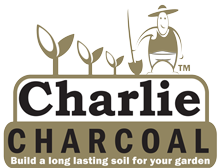

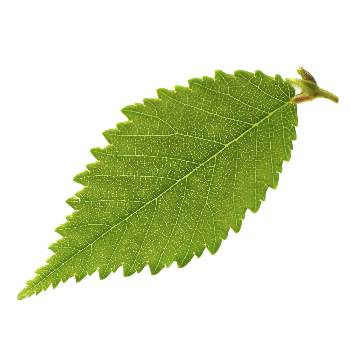 Welcome to November! Here we are just a stone's throw from Christmas again - how does it happen? I hope you've been enjoying this Spring weather - up to now it's been very mild and our gardens have enjoyed some rain; such a lovely time as things are actively growing but not stressing in the heat.
Welcome to November! Here we are just a stone's throw from Christmas again - how does it happen? I hope you've been enjoying this Spring weather - up to now it's been very mild and our gardens have enjoyed some rain; such a lovely time as things are actively growing but not stressing in the heat.  We've got some great news to share... Last month we announced we were finalists in the Belmont & WA Small Business Awards; and we are THRILLED to tell you we WON the "Sustainability Award" at the presentation night 24th October at the Perth Convention and Exhibition Centre. It means a lot to us; and I know we were up against some strong competition (for one - Urban Revolution of Vic Park). And if that wasn't enough - 29th October we discovered we've WON the National 2018 Organic Consumer Choice Award for "Best Organic Specialist" - as voted for by our lovely customers! So THANK YOU everyone who voted for us ~ you put us over the line and a people's choice award is surely the best accolade any business can hope to receive. So we're feeling the love - thank you all so very much for your support.
We've got some great news to share... Last month we announced we were finalists in the Belmont & WA Small Business Awards; and we are THRILLED to tell you we WON the "Sustainability Award" at the presentation night 24th October at the Perth Convention and Exhibition Centre. It means a lot to us; and I know we were up against some strong competition (for one - Urban Revolution of Vic Park). And if that wasn't enough - 29th October we discovered we've WON the National 2018 Organic Consumer Choice Award for "Best Organic Specialist" - as voted for by our lovely customers! So THANK YOU everyone who voted for us ~ you put us over the line and a people's choice award is surely the best accolade any business can hope to receive. So we're feeling the love - thank you all so very much for your support.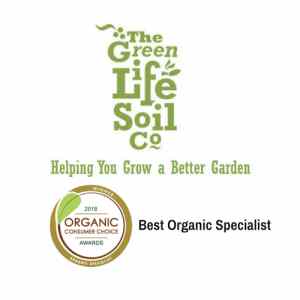 Workshops! While a few workshops unfortunately haven't had enough traction to run; the ones that have run have been well attended and we've received some great feedback from participants. Remember to check out the
Workshops! While a few workshops unfortunately haven't had enough traction to run; the ones that have run have been well attended and we've received some great feedback from participants. Remember to check out the .JPG) Linda & the Team @
Linda & the Team @ 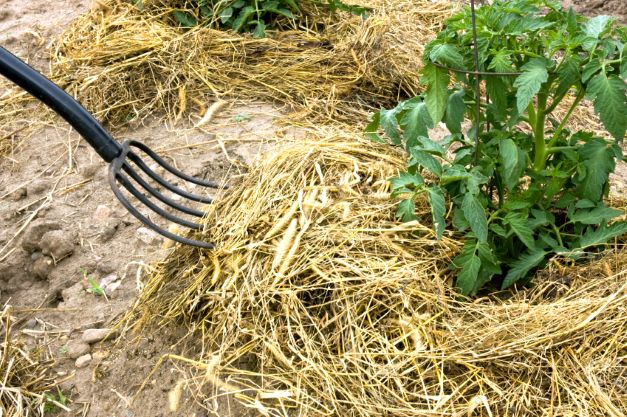 Prep your garden for summer! We discussed it last month, but your plants will benefit from getting soil improvement done (water holding minerals and mulch) BEFORE the heat really strikes.
Prep your garden for summer! We discussed it last month, but your plants will benefit from getting soil improvement done (water holding minerals and mulch) BEFORE the heat really strikes. Lawns! Now's the time many varieties are actively growing, so feed them, add soil wetters and/or minerals for long term soil health - this is the perfect time to show your lawn some love. Try our top dress (becoming quite renowned around town!) to rejuvenate your lawn and fill in divots. Check your retic and remove weeds. Your hard work now will pay off in time for all those family gatherings coming up when you'll want to use your backyard for entertaining and playing outdoors.
Lawns! Now's the time many varieties are actively growing, so feed them, add soil wetters and/or minerals for long term soil health - this is the perfect time to show your lawn some love. Try our top dress (becoming quite renowned around town!) to rejuvenate your lawn and fill in divots. Check your retic and remove weeds. Your hard work now will pay off in time for all those family gatherings coming up when you'll want to use your backyard for entertaining and playing outdoors. Pest patrol. Stay on the lookout for slugs & snails (which have been active for longer with this Spring rain), aphids and the dreaded white cabbage butterfly - breeding up in numbers now. Sap sucking aphids & thrips can spread disease to healthy plants - so deal with them before populations get too big. Controlling weeds is helpful in this too - lush weeds can support pests 'between seasons' of your vegies - so make sure you don't make it easier for pests to thrive in your garden.
Pest patrol. Stay on the lookout for slugs & snails (which have been active for longer with this Spring rain), aphids and the dreaded white cabbage butterfly - breeding up in numbers now. Sap sucking aphids & thrips can spread disease to healthy plants - so deal with them before populations get too big. Controlling weeds is helpful in this too - lush weeds can support pests 'between seasons' of your vegies - so make sure you don't make it easier for pests to thrive in your garden.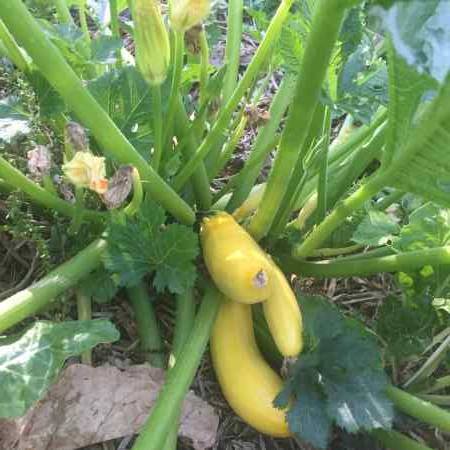 Assess how your crops are going, and decide if there are 'gaps'. Succession planting means putting in a few seeds every three or four weeks - this ensures that you've always got new crops coming on, and is the gardener's equivalent of "not putting all your eggs in one basket". Should you have a major drama (blocked sprinkler, pest explosion) you've got new plants coming on a bit behind that will provide you with produce in due course. Succession planting also means you're not trying to harvest and use 25 cucumbers a day. If you planted things too soon and the ground temperature wasn't quite right for germination; the next lot you plant will probably be fine.
Assess how your crops are going, and decide if there are 'gaps'. Succession planting means putting in a few seeds every three or four weeks - this ensures that you've always got new crops coming on, and is the gardener's equivalent of "not putting all your eggs in one basket". Should you have a major drama (blocked sprinkler, pest explosion) you've got new plants coming on a bit behind that will provide you with produce in due course. Succession planting also means you're not trying to harvest and use 25 cucumbers a day. If you planted things too soon and the ground temperature wasn't quite right for germination; the next lot you plant will probably be fine. .JPG) Herbs. (Ok some are already listed above - but they're so good we're listing them twice) Many herbs will grow brilliantly at this time of year. Basil, Rocket, Chives (pictured right), Mint, Oregano, Marjoram, Dill, Fennel, Parsley, Rosemary, Sage, Thyme are some of the most common ones - but there's so many other interesting herbs you might like to try. We keep a good range of herbs (culinary and medicinal) at GLSC - so if you're in the area, do call in and have a look!
Herbs. (Ok some are already listed above - but they're so good we're listing them twice) Many herbs will grow brilliantly at this time of year. Basil, Rocket, Chives (pictured right), Mint, Oregano, Marjoram, Dill, Fennel, Parsley, Rosemary, Sage, Thyme are some of the most common ones - but there's so many other interesting herbs you might like to try. We keep a good range of herbs (culinary and medicinal) at GLSC - so if you're in the area, do call in and have a look! 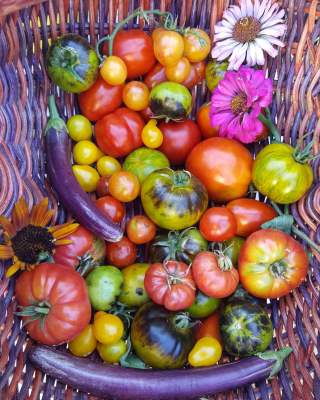
 Once you start to look – you’ll be amazed at the huge range of tomatoes available; whether in seedling or seeds… and yet there are far less varieties around NOW than there used to be; largely thanks to commercialisation of tomato growing and the decline of home gardens, and seed saving.
Once you start to look – you’ll be amazed at the huge range of tomatoes available; whether in seedling or seeds… and yet there are far less varieties around NOW than there used to be; largely thanks to commercialisation of tomato growing and the decline of home gardens, and seed saving.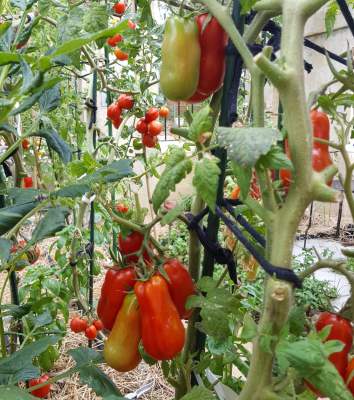 Tomatoes can have large and vigorous root systems (they have been known to grow several metres down!) – so if you’re planting in a pot; the bigger the better. We like the 75L planter bags as they give the tomatoes enough room to grow. Improve the soil with aged manure and/or good quality compost. A side dressing of potash is good. Tomatoes do require good drainage, but also require regular water (more on water later!). Mulching is also recommended to keep soil protected. Straw, pea straw, lupin or lucerne mulch is ideal.
Tomatoes can have large and vigorous root systems (they have been known to grow several metres down!) – so if you’re planting in a pot; the bigger the better. We like the 75L planter bags as they give the tomatoes enough room to grow. Improve the soil with aged manure and/or good quality compost. A side dressing of potash is good. Tomatoes do require good drainage, but also require regular water (more on water later!). Mulching is also recommended to keep soil protected. Straw, pea straw, lupin or lucerne mulch is ideal.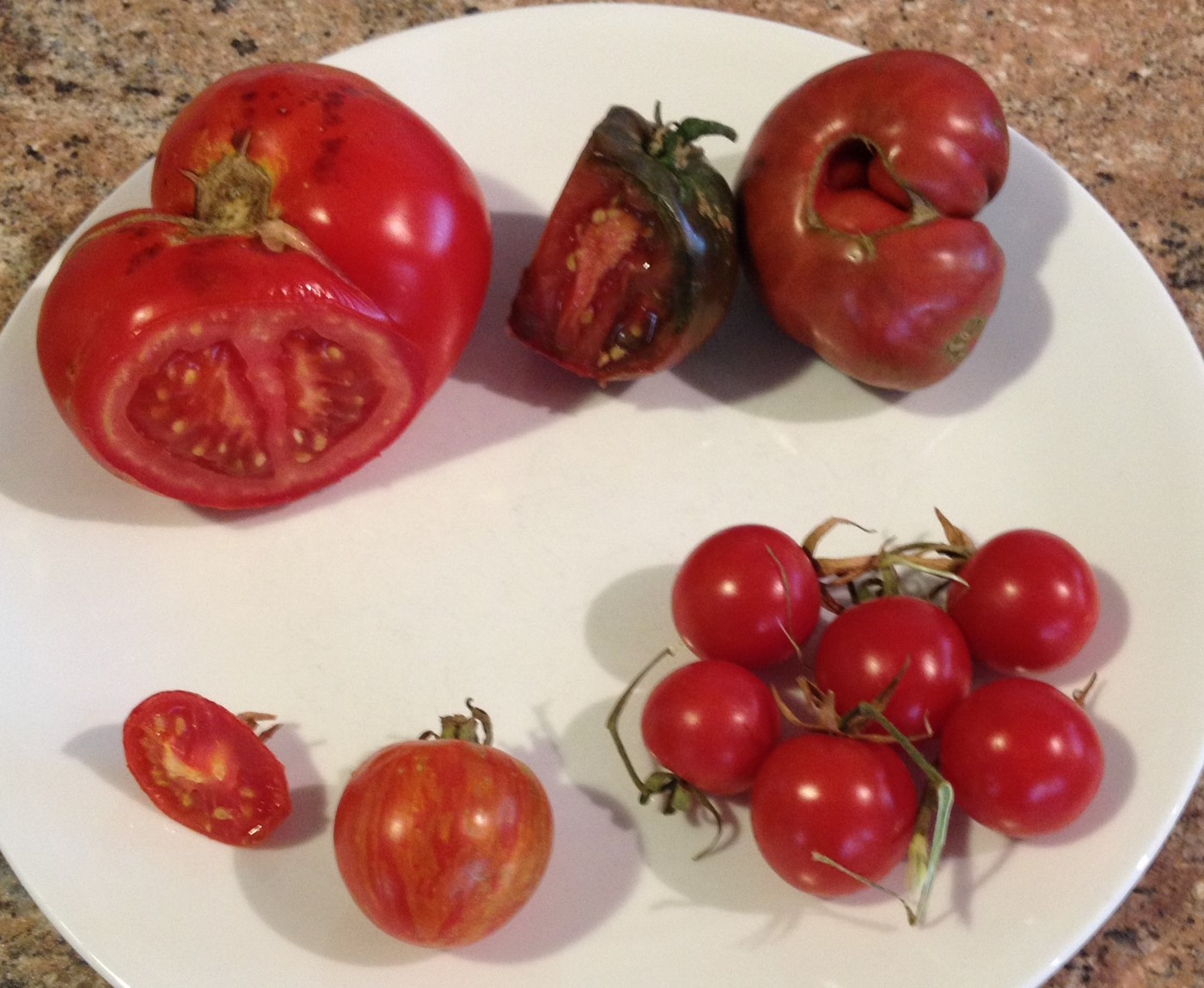 Some gardeners like to prune tomatoes as they grow. This may help allow extra airflow around plants – but it’s interesting to note that a Diggers study conclusively showed that pruning reduced yield, and had no effect whatsoever on the size of the fruit - so trim your plants if you need to contain their size, or make them less top heavy; but otherwise there’s no advantage in pruning your plants.
Some gardeners like to prune tomatoes as they grow. This may help allow extra airflow around plants – but it’s interesting to note that a Diggers study conclusively showed that pruning reduced yield, and had no effect whatsoever on the size of the fruit - so trim your plants if you need to contain their size, or make them less top heavy; but otherwise there’s no advantage in pruning your plants.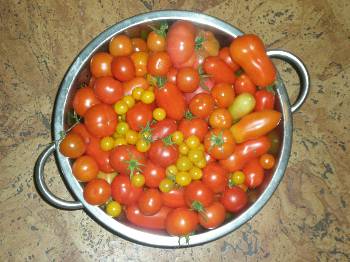 Tomatoes should receive REGULAR watering. Make sure they’re watered well when establishing them; and as they mature you can ease off. A recommended check is to monitor the growing points of the plant. During the heat of the day the young tips may wilt slightly. This is OK. But if the mature leaves and whole branches wilt – more watering is required. Once plants are producing heavily, less water tends to mean enhanced flavour (studies show that excessive water can dilute flavour).
Tomatoes should receive REGULAR watering. Make sure they’re watered well when establishing them; and as they mature you can ease off. A recommended check is to monitor the growing points of the plant. During the heat of the day the young tips may wilt slightly. This is OK. But if the mature leaves and whole branches wilt – more watering is required. Once plants are producing heavily, less water tends to mean enhanced flavour (studies show that excessive water can dilute flavour). 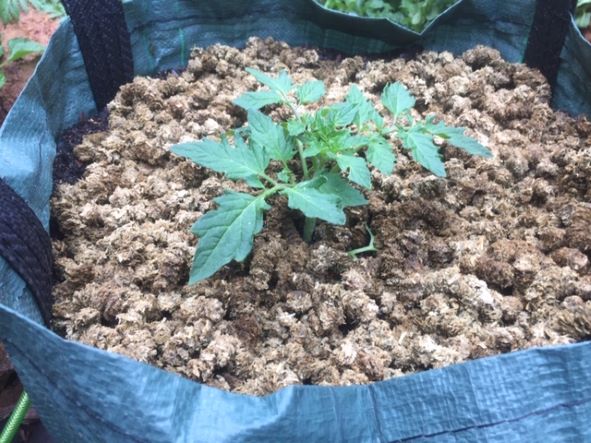 Nematodes can be a problem in Perth, too. They love our dry, sandy soil and tend to proliferate at the end of summer. They damage roots and affect the ability of plants to uptake nutrients and water. Crop rotation is another way to deal with this – as is digging in green manure crops and lots of organic matter. As this decays it makes the soil less suitable for nematodes to thrive.
Nematodes can be a problem in Perth, too. They love our dry, sandy soil and tend to proliferate at the end of summer. They damage roots and affect the ability of plants to uptake nutrients and water. Crop rotation is another way to deal with this – as is digging in green manure crops and lots of organic matter. As this decays it makes the soil less suitable for nematodes to thrive.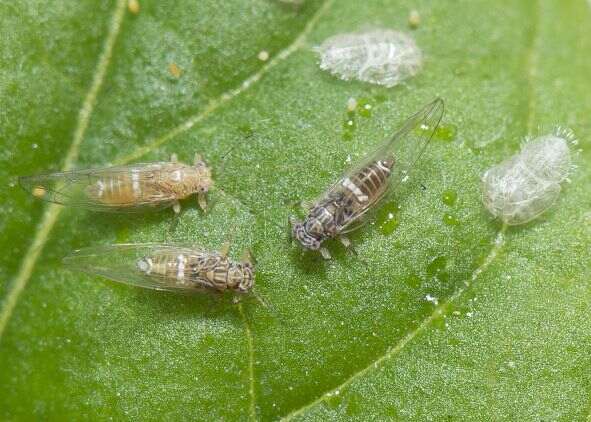 We talked about aphids & thrips (in the 'jobs to do' section above) and their role in spreading disease. Tomatoes can also be affected by mites - another tiny sap sucker that attacks the leaves. But then there's the grubs/caterpillars that attack the FRUIT - which is even worse!! These budworms are the larvae of a moth (active at night) and while they start off on the foliage, they move into developing fruit, causing it to rot. Hand picking any tiny caterpillars, netting your plants and treating with Dipel if the problem gets exceptionally out of control are the best ways to deal with them. There's also the green shield bugs that will attack your fruiting tomatoes; shake these off into some soapy water each morning and you'll make a good dent in their numbers.
We talked about aphids & thrips (in the 'jobs to do' section above) and their role in spreading disease. Tomatoes can also be affected by mites - another tiny sap sucker that attacks the leaves. But then there's the grubs/caterpillars that attack the FRUIT - which is even worse!! These budworms are the larvae of a moth (active at night) and while they start off on the foliage, they move into developing fruit, causing it to rot. Hand picking any tiny caterpillars, netting your plants and treating with Dipel if the problem gets exceptionally out of control are the best ways to deal with them. There's also the green shield bugs that will attack your fruiting tomatoes; shake these off into some soapy water each morning and you'll make a good dent in their numbers.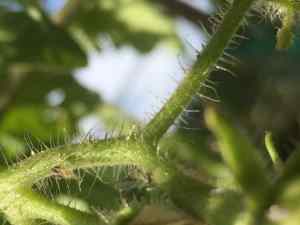 Did you know that the hairs on the stems of your tomato plants serve to protect the plant? Called Trichomes, they help insulate the plant and protect against water loss, but they also exude essential oils - that "tomato smell" you get on your skin when handling the plants. This scent is thought to deter chewing insects, and the plant can alter the compounds it releases in an attempt to confuse and deter different pests. So the hairier the tomato - the healthier, potentially!
Did you know that the hairs on the stems of your tomato plants serve to protect the plant? Called Trichomes, they help insulate the plant and protect against water loss, but they also exude essential oils - that "tomato smell" you get on your skin when handling the plants. This scent is thought to deter chewing insects, and the plant can alter the compounds it releases in an attempt to confuse and deter different pests. So the hairier the tomato - the healthier, potentially!.jpg)
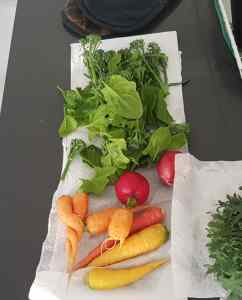
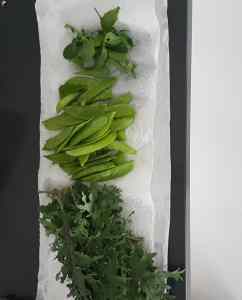
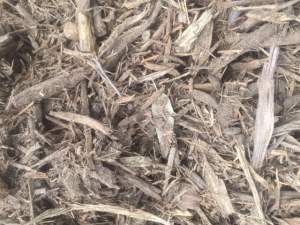 NOVEMBER'S SPECIAL OFFER is still all about mulch - just in time for summer!
NOVEMBER'S SPECIAL OFFER is still all about mulch - just in time for summer!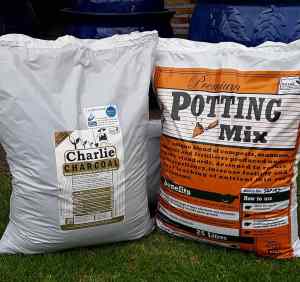 Beaufort Garden World - Inglewood 9271 0585
Beaufort Garden World - Inglewood 9271 0585




















